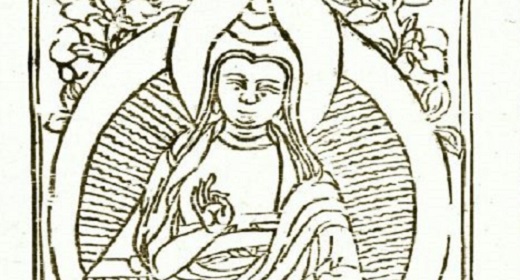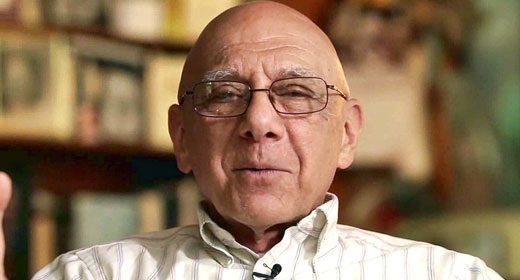1. “Pain is not wrong. Reacting to pain as wrong initiates the trance of unworthiness. The moment we believe something is wrong, our world shrinks and we lose ourselves in the effort to combat the pain.”
2. “Perhaps the biggest tragedy of our lives is that freedom is possible, yet we can pass our years trapped in the same old patterns…We may want to love other people without holding back, to feel authentic, to breathe in the beauty around us, to dance and sing. Yet each day we listen to inner voices that keep our life small.”
3. “Imperfection is not our personal problem – it is a natural part of existing.”
4. “The intimacy that arises in listening and speaking truth is only possible if we can open to the vulnerability of our own hearts. Breathing in, contacting the life that is right here, is our first step. Once we have held ourselves with kindness, we can touch others in a vital and healing way.”
5. “Radical Acceptance is the willingness to experience ourselves and our lives as it is.”
6. “Each time you meet an old emotional pattern with presence, your awakening to truth can deepen. There’s less identification with the self in the story and more ability to rest in the awareness that is witnessing what’s happening. You become more able to abide in compassion, to remember and trust your true home. Rather than cycling repetitively through old conditioning, you are actually spiraling toward freedom.”
7. “Clearly recognizing what is happening inside us, and regarding what we see with an open, kind and loving heart, is what I call Radical Acceptance. If we are holding back from any part of our experience, if our heart shuts out any part of who we are and what we feel, we are fueling the fears and feelings of separation that sustain the trance of unworthiness. Radical Acceptance directly dismantles the very foundations of this trance.”
8. “Awakening self-compassion is often the greatest challenge people face on the spiritual path.”
9. “Fear of being a flawed person lay at the root of my trance, and I had sacrificed many moments over the years in trying to prove my worth. Like the tiger Mohini, I inhabited a self-made prison that stopped me from living fully.”
10. “The boundary to what we can accept is the boundary to our freedom.”
11. “The muscles used to make a smile actually send a biochemical message to our nervous system that it is safe to relax the flight of freeze response.”
12. “Suffering is our call to attention, our call to investigate the truth of our beliefs.”
13. “Nothing is wrong—whatever is happening is just “real life.”
14. “Most of the time Marilyn’s mother remained unconscious, her breath labored and erratic. One morning before dawn, she suddenly opened her eyes and looked clearly and intently at her daughter. “You know,” she whispered softly, “all my life I thought something was wrong with me.” Shaking her head slightly, as if to say, “What a waste,” she closed her eyes and drifted back into a coma.”
15. “The renowned seventh-century Zen master Seng-tsan taught that true freedom is being “without anxiety about imperfection.”
16. “In anguish and desperation, I reached out as I had many times before to the presence I call the Beloved. This unconditionally loving and wakeful awareness had always been a refuge for me.”
17. “I found myself praying: “May I love and accept myself just as I am.”
18. “You have a unique body and mind, with a particular history and conditioning. No one can offer you a formula for navigating all situations and all states of mind. Only by listening inwardly in a fresh and open way will you discern at any given time what most serves your healing and freedom.”
19. “I was manipulating my inner experience rather than being with what was actually happening.”
20. “What would it be like if I could accept life–accept this moment–exactly as it is?”
21. “On this sacred path of Radical Acceptance, rather than striving for perfection, we discover how to love ourselves into wholeness.”
22. “In bullfighting there is an interesting parallel to the pause as a place of refuge and renewal. It is believed that in the midst of a fight, a bull can find his own particular area of safety in the arena. There he can reclaim his strength and power. This place and inner state are called his querencia. As long as the bull remains enraged and reactive, the matador is in charge. Yet when he finds his querencia, he gathers his strength and loses his fear. From the matador’s perspective, at this point the bull is truly dangerous, for he has tapped into his power.”
23. “After several days, I had a pivotal interview with my teacher. When I described how I’d become so overwhelmed, she calmly asked, “How are you relating to the presence of desire?” I was startled into understanding. Her question pointed me back to the essence of mindfulness practice: It doesn’t matter what is happening. What matters is how we are relating to our experience. For me, desire had become the enemy, and I was losing the battle. She advised me to stop fighting my experience and instead investigate the nature of my wanting mind. Desire was just another passing phenomenon, she reminded me. It was attachment or aversion to it that was the problem.”
24. “While the bodies of young children are usually relaxed and flexible, if experiences of fear are continuous over the years, chronic tightening happens. Our shoulders may become permanently knotted and raised, our head thrust forward, our back hunched, our chest sunken. Rather than a temporary reaction to danger, we develop a permanent suit of armor. We become, as Chogyam Trungpa puts it, “a bundle of tense muscles defending our existence.” We often don’t even recognize this armor because it feels like such a familiar part of who we are. But we can see it in others. And when we are meditating, we can feel it in ourselves—the tightness, the areas where we feel nothing.”
25. “I recently read in the book My Stroke of Insight by brain scientist Jill Bolte Taylor that the natural life span of an emotion—the average time it takes for it to move through the nervous system and body—is only a minute and a half. After that we need thoughts to keep the emotion rolling. So if we wonder why we lock into painful emotional states like anxiety, depression, or rage, we need look no further than our own endless stream of inner dialogue.”

















































